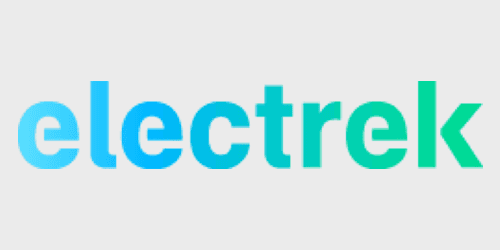
Kentucky is now the latest state to find that Electric Vehicle Charging Stations (EVCSs) are exempt from utility regulation. Had Kentucky’s Public Service Commission (PSC) decided otherwise, it would mean that EVCS charging costs would be regulated just like your home power bill. But it would also have had heavy consequences, deterring private investment in EV charging infrastructure.
The debate over utilities’ role in EV charging is a hot mess
The docket before the Kentucky PSC is an example of how elected leaders do a disservice to their constituents when they ignore EV charging infrastructure, and just leave it to the utility regulator. Instead of discussing how best to handle EV charging, a lot of time and resources are wasted on whether every last EVCS – from a Tesla Supercharger to a Main Street curb-side L2 charger – should be regulated as a utility. Almost no one wants that.
But is rejecting all utility-style regulation for every EVCS a good idea?
Utilities support ratepayer protection, oppose Tesla Supercharger Network
When you buy electricity from a utility, the rate is set by a tariff (price) schedule approved by the regulator. If the utility wants to raise prices to fund investment, they first have to seek permission from their regulator for the spending and corresponding rate hike.
When you buy electricity from a private EVCS operator, prices can be raised dramatically overnight.
The Alliance for Transportation Electrification, a utility trade group, advocates for utilities owning and operating their own public EVCSs – “ensuring appropriate protections for electric ratepayers (including non-participants) as well as recognizing a robust role for non-utility service providers”. In a regulatory framework like this, utilities offer a “wholesale” tariff-rate for private EVCS operators and have their own “retail” tariff-rate they would charge at the utility’s own public EV charging stations.
In recent filings before utility commission dockets, the Alliance and its members have argued that they should only have to offer wholesale rates to EVCS operators who use the Open Charge Point Protocol and enable roaming between private network operators. This would exclude Tesla, meaning that Tesla would pay more for electricity for its Supercharger Network than operators who use OCPP.
Electrek’s Take
How do you like the idea of living in an apartment where your electric meter is owned and operated by a private company, chosen by your landlord, that acts as a middleman between you and the utility, and has the power to mark-up your power rates in cahoots with your landlord? Would you like it more if they let you bundle your power bill with your cable TV or renter’s insurance? 😛
I think we’re all glad that our meters are owned and operated by utilities subject to utility control.
At the same time, most EV drivers would likely agree that there’s a big place in the market for private operators like Electrify America, Tesla, and Chargepoint to partner with private businesses and offer flexible charging-billing solutions. For example, a grocery store giving an hour of free charging followed by a high charge for spot hogs who stay over an hour. Or Tesla offering free EVCS to hotels for the benefit of their customers.
But we shouldn’t be forced to choose between utility-level regulation for every last EVCS, or a dystopian company-town future. Kentucky’s Public Service Commission chose the latter for every EVCS in the state.
Indeed, this choice punishes lower-income individuals. If you live in a house with a dedicated parking spot, you get to charge off your utility-meter and enjoy all the benefits of rate-payer protection. But if you live in an apartment with a common parking lot, then in Kentucky you’re at the mercy of private EVCS operators.
And how about curbside charging on public streets? The privatization of public space is a growing problem in America. Chicago sold off their parking meters, and drivers are paying dearly. Public curbsides should not become the domain of private toll collectors.
At a minimum, utilities should be responsible for the operation and billing of EVCSs in multi-dwelling residence buildings and on public property, and users there should enjoy the same rate-payer protections afforded to homeowners.
The separate question of whether private networks like Tesla’s Supercharger network should benefit from wholesale EV rates is a tougher debate, with good points on both sides. But even if you oppose that, the difference between a wholesale EVCS rate and retail rate should be small, assuming the bulk of the cost isn’t in the physical EVCS station, but rather the ongoing power production and distribution (as well as conduit build-out).
The National Association of Regulatory Utility Commissioners has links to every American, Canadian, and many international utility regulators. Look yours up and let them hear from you, it’ll make a difference!
FTC: We use income earning auto affiliate links. More.




Comments